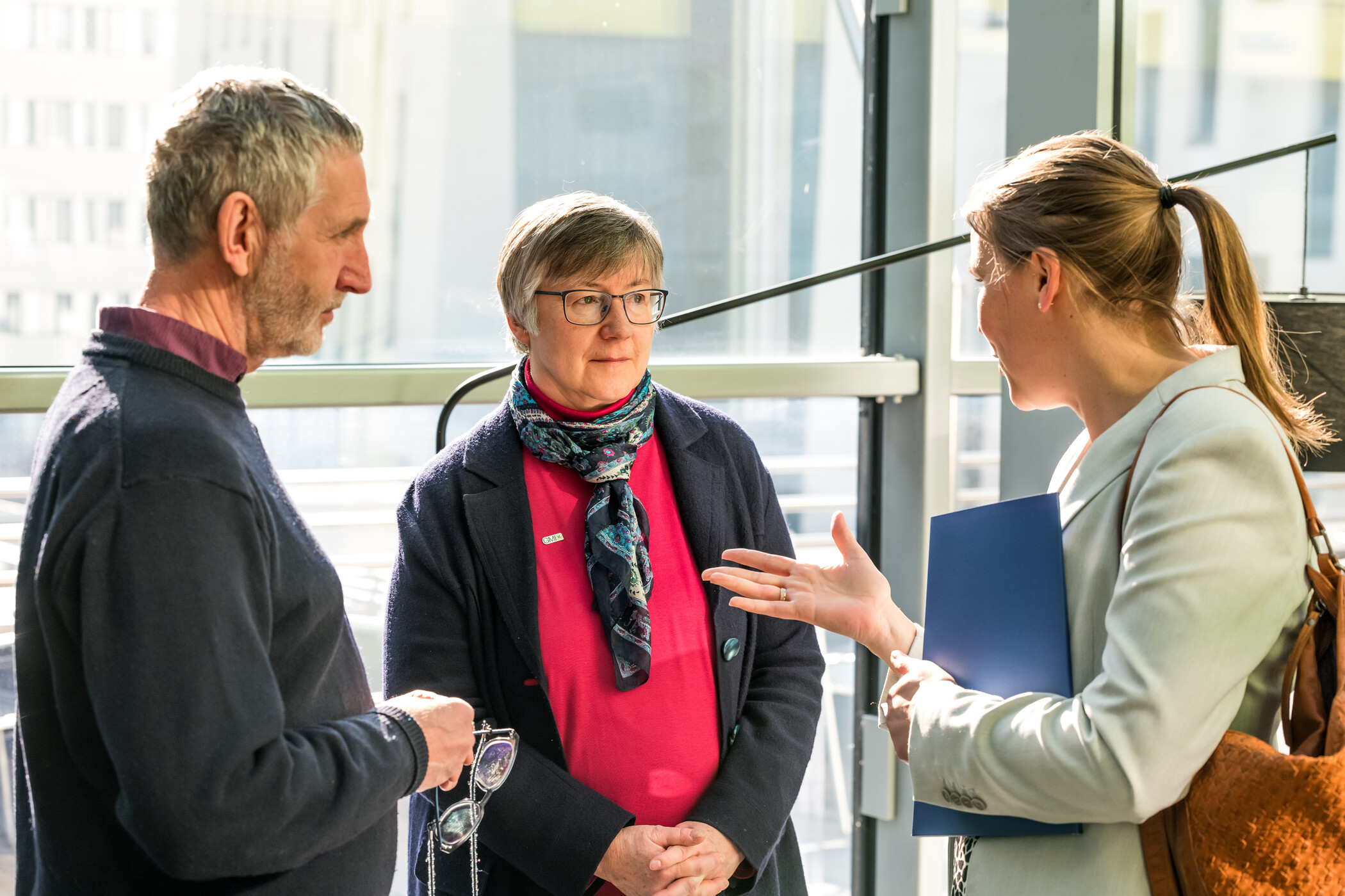Potential of genetic engineering for agriculture

The public debate about genetic engineering has been characterized by uncertainties for decades. New methods of green genetic engineering also face a lot of skepticism. At a ÖAW Science Update, held on March 2 at the Gregor Mendel Institute of Molecular Plant Biology (GMI) of the Austrian Academy of Sciences (ÖAW), experts discussed the potential benefits of green genetic engineering in agriculture. Ortrun Mittelsten Scheid, a molecular biologist at the GMI, together with the plant researcher Herrmann Bürstmayr from the University of Natural Resources and Life Sciences in Vienna and OeAW President Heinz Faßmann, informed journalists at the OeAW Science Update series about green genetic engineering.

Mittelsten Scheid highlighted the fact that skepticism surrounding genetic engineering was anchored strongly in the public, despite the fact that humans have been breeding crops for thousands of years. “In Europe we are very nostalgic about ‘naturalness’ – without thinking about the fact that we have been breeding for 10,000 years,” Mittelsten Scheid said in an interview. “Not a single fruit or vegetable as we know it today corresponds to the original.”
Modern methods of gene editing produce the same kind of mutations that result from classical breeding, but more targeted, faster and cheaper. “The genetically modified end product is molecular-biologically indistinguishable from a mutation produced in the conventional way.” However, the approval procedures for genetically modified crops are complex and expensive, making it difficult for small businesses to enter the market.
Applying genetic engineering in plants could be a tool to adapt crops to changing conditions and improve food security in times of limited resources. While genetic engineering is not a cure-all for making agriculture more ecologically compatible, Mittelsten Scheid pointed out that green genetic engineering is a possible solution to address complex traits like drought, heat, and salt resistance.
The Science Update series, which began last year, aims to strengthen the exchange between journalists and experts on socially relevant issues. The discussion on green genetic engineering is a timely topic as agriculture faces significant challenges due to climate change and limited resources. Read the full interview with Ortrun Mittelsten Scheid here.